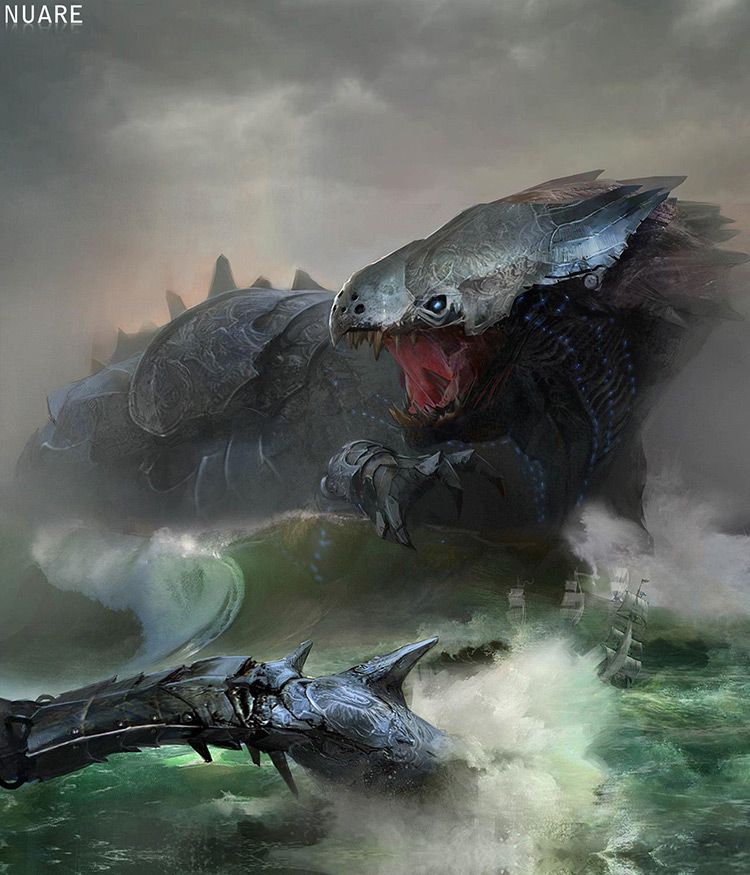The pike resembles the Leviasan, whose open mouth effortlessly devours the great sea serpent. * The feast of the Leviasan is G-d’s pleasure in us for completing our mission in the world, avodas ha’birurim, “zev yitraf – a clawing wolf.”
By Rabbi Boruch Merkur
 Painting a portrait of a razor-toothed carnivore, the pike - der hecht in Yiddish - the Rebbe devotes an entire sicha to eulogizing Rabbi Moshe Hecht, a”h.[1]
Painting a portrait of a razor-toothed carnivore, the pike - der hecht in Yiddish - the Rebbe devotes an entire sicha to eulogizing Rabbi Moshe Hecht, a”h.[1]Although pike eat other fish, they are not vicious. Patient and still, the pike’s mouth opens wide and fish just swim into it on their own. Similar is said of the Leviasan: “It opens its mouth and the great sea serpent, when its day comes to be devoured, runs away and flees, entering right into the jaws of the Leviasan.”[2]
That being said, the carnivorous hecht is a rapacious fish, the Wolf of the Sea. Just as the Torah describes Binyamin as “zev yitraf – a clawing wolf,” the holy counterpart of this idea is avodas ha’birurim, rectifying the rapach nitzutzim, the 288 sparks of Tohu.[3]
Hecht is like a wolf that lashes out before it with its forelegs and behind it with its hindlegs, grabbing and incorporating the profane into the holy, as Shabbos extends into the next week as well as into the day before it, Erev Shabbos. “Thus, on Erev Shabbos, fish is prepared (the work of ‘the clawing wolf’), although it is only eaten on Shabbos proper (the time of rest that follows the work of ‘the clawing wolf’).”[4]
*
The chassid Moshe Hecht passed away on Erev Shabbos, which is said to be “a good sign for the person,”[5] symbolizing
the completion and perfection of the avoda of rectifying worldly matters (“zev yitraf”),[6] as a result of which the soul “experiences immediate tranquility”[7] [without requiring the spiritual cleansing process of Chibut HaKever] …
The main thing is that the circumstance of “one who dies on Erev Shabbos” results in “a good sign” (if there is still any need for signs) that we have already finished and completed the work and mission of rectifying and refining mundane matters, as a “zev yitraf” … and all is ready for the feast, the feast of the Future Era (“a day that is entirely a sabbatical and eternal tranquility”), when there will be the ultimate indulgence in fish (after its preparation is complete on Erev Shabbos) - the flesh of the Leviasan.[8]
FN 107: The verse (T’hillim 104:24), “You have formed this Leviasan to play with,” refers to the rejoicing and pleasure On High from the aggregate efforts of rectifying the world … “zev yitraf.”
The predatory hunt for Divine sparks in a dark world is over. The plight of the wolf is done. If we are wolves we are Wolves of the Sea, like the Leviasan, who effortlessly devours the sea serpent, transforming even that darkness. On Erev Shabbos, just before the final redemption, all preparations have been completed. Now we are ready to enjoy the great feast, when we all celebrate G-d and experience G-d’s pleasure in us.
Hashem expresses His delight in His Creation, the souls of the Jewish people, by immediately granting the miraculous life of the Era of Resurrection, without any interruption at all, without death. Eternal life and bodily health is something we are meant to bring into our lives now, moments before the Gate opens up for all to see (see Ramchal’s Maamer Geula on “the windows closing” immediately before redemption). This is the final moment to exert ourselves before it becomes exceedingly obvious that G-d gives us the power to do so and succeed.
[1] a great chassid, who brought “vigor and joy” to all his endeavors (Seifer HaSichos 5752, pg. 276).
[2] Pirkei D’Rebbi Eliezer Ch. 9
[3] “Taraf,” 288 with an additional Alef, 1, representing Alufo shel Olam - drawing G-dliness into and revealing His unity even in this dark, chaotic world.
[4] Seifer HaSichos 5752, pg. 277
[5] K’suvos 103b
[6] FN 98: … Binyamin was a consummate tzaddik, who only “died from the original sin of succumbing to the serpent,” rectifying his Animal Soul, separating from it all evil. This is the analogy of the clawing wolf.
FN 108: Certainly we don’t need signs of this sort, G-d forbid, since we have already fulfilled all such “obligations.” From now on, may each and every Jew live a good long life.
[7] Rashi on K’suvos 103b
[8] Seifer HaSichos 5752, pg. 277-279